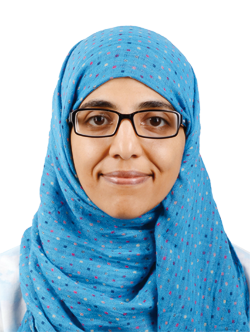

Rasha al Raisi - I had the pleasure of attending 2 Arabic monodramas (one actor play) in the Cultural Club, here in Muscat. The plays were part of the ongoing Muscat Festival. There were 4 monodramas played in two consecutive days. I missed the first day, but managed to attend the second. All 4 plays were part of the competition that the Cultural Club runs on yearly basis.
It was my second time to attend a play here in Oman.
The first was while I was teaching in college and it was a comedy that made me laugh.
But this time I was a bit disappointed as the club lacked the essential substance of a theatre — a stage.
The plays were performed in different conference halls with chairs arranged to face front.
One hall had what looked like a make-shift stage but the second didn’t, which made it hard to watch (I was sitting on the second row and had to strain my neck in order to follow the act).
The first play was based on Chekhov’s short play: The Swansong and performed by Salalah Theatre Group. The play talks about a retiring actor who in a drunken stupor contemplates life and death.
At the end he chooses life and decides to walk away from theatre that he dedicated 45 years of his life to.
He tries to find his true worth away from the lights and the audience, that betrays him each night when they leave at the end of each performance.
The play lasted for 25 minutes but it was really impressive.
The actor Issa Ajzoon did well impersonating the drunk old cynical actor, and managed to make us chuckle at times.
The second play was called This City Doesn’t Like Vegetables, written by the well-known Omani writer Mohammed al Rahbi and acted by Mohammed al Salmani.
The main character is a vegetable vendor, who faces problems conducting his daily business on the street.
He meets a theatre director, who encourages him to discuss his concerns publicly on stage.
The vendor takes up the offer and brings his vegetables cart along.
But when he starts complaining, the director keeps interrupting him — through an ear piece.
When the complaints get out of hand, the director cuts the power out, suggesting the end of the play.
Sensing the futility of his mission, the vendor announces going back to his old life, and the power comes back again.
The main character is based on Mohammed Bouazizi, the Tunisian street vendor whose act of self-immolation instigated the Tunisian Revolution in 2011.
The play uses a lot of wordplay with a clear message of the rigorous censorship and the lack of freedom of speech in the Arab world.
The actor’s performance was captivating and energetic as he kept running around the space with his cart.
I was really proud to witness brilliant talents despite the lack of stage.
Another drawback of the competition was the over familiarity of the audience and the theatre groups.
The audience were mainly local and GCC media personalities (actors, directors and presenters).
The interaction before each play felt like a high school reunion instead of a professional assembly.
There was so much laughter and cacophony that made it impossible at times to take things seriously.
We say in Arabic that theatre is the father of arts.
To honour it, I wish that we’d have one similar to the Royal Opera House.
There are many spectators who’d love to attend different productions from around the Arab world.
Let me conclude this piece with a quote: “Theatre is life. Cinema is art. Television is furniture.”
Rasha al Raisi is a certified skills trainer and the author of: The World According to Bahja.
rashabooks@yahoo.com
Oman Observer is now on the WhatsApp channel. Click here



